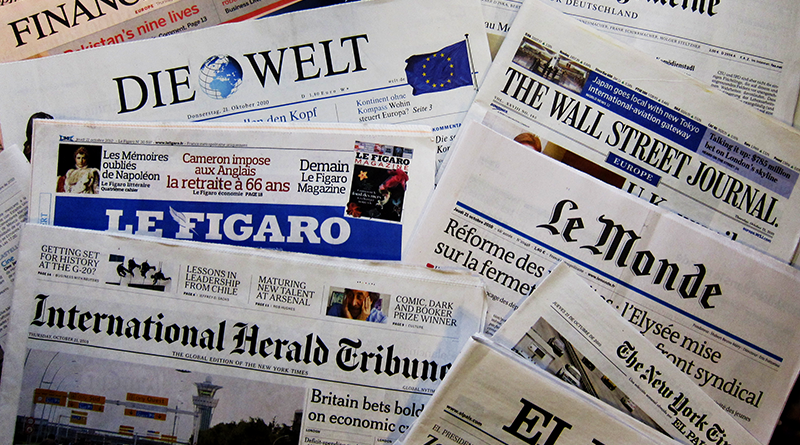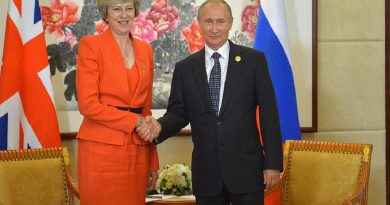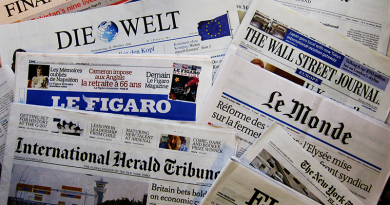This Week in the News (December 30, 2016)
The final week of 2016 has been quite an eventful one, and not always for the best of reasons. Not only has the world lost beloved artists – like Greek British singer George Michael, or American mother and daughter actresses Debbie Reynolds and Carrie Fisher – but also the Greek Ambassador to Brazil has disappeared and presumed dead, not to mention the major developments in escalating diplomatic tensions between the US and Russia, or the US and Israel. Even though I’m tasked to cover Europe in my contribution to this section of Changing World, I find it hard to ignore key issues that will eventually affect Europe in the future.
Berlin attack
The recent alleged terrorist attack carried out in a Berlin Christmas fair has had new developments this week. On the day of the attack, last week, a twenty-four year old Pakistani refugee was arrested and mistreated by German authorities in connection with the attack, but was later released and is now in hiding and fearing for his life. Earlier this week, Italian newspaper il Post and British newspaper the Telegraph both published a profile of Anis Amri, the man believed to be the actual perpetrator of the attack, who was shot in Milan after a video surfaced of him pledging allegiance to the terrorist group Daesh. Soon after, Amri’s nephew was arrested in Tunisia, following accusations that his uncle had “urged his nephew to swear allegiance to Islamic State and sent him money to travel to Europe.”
The complexities of the Brexit
The Brexit hasn’t been especially present in this week’s news – with so much happening at the same time – but it’s still there and still a concern for both those supporting and opposing it, whether they admit its complexity or otherwise. This week, British newspaper the Guardian presented a portrait of what the future might hold for the UK after the Brexit. Citing a report by the Institute of Public Policy Research the newspaper states that “Britain faces a decade of disruption after Brexit with low growth, stagnating incomes for the poor and the public finances at breaking point,” despite some companies alleging that the Brexit conundrum has been beneficial for them.
Thankfully, in my opinion, Scotland isn’t giving up on its place ‘at the heart of Europe’, and has, according to the Telegraph, drafted a plan and threatened to have a new referendum.
Looking forward to publishing 'Scotland's Place in Europe' – the first plan anywhere in UK for dealing with Brexit. pic.twitter.com/5GZ6jAeUQV
— Nicola Sturgeon (@NicolaSturgeon) December 20, 2016
Mediterranean refugee crisis
2016 was a terrible year for refugees: Aljazeera called it ‘the year the world stopped caring about refugees‘, as over 5000 people died trying to get to Europe by attempting to cross the Mediterranean. With so much happening in these last two weeks, people seem to have forgotten the humanitarian aspect of the Mediterranean refugee crisis. Britain’s promise to receive child migrants from the recently dismantled Calais ‘Jungle’ refugee camp has backfired, as now over thirty of them are now are launching legal action against the British government for evading responsibilities and mishandling their cases.
Germany’s 2015 openness has been replaced with cutting on asylum application acceptances, especially since the Berlin attack earlier this month and other refugee-related incidents, such as the attempted murder of a homeless man, also in Berlin. These incidents have greatly fuelled the anti-immigration sentiment that has been lurking in Europe and have forced Angela Merkel to change her stance on the issue due to next year’s elections.
Russia
Last week’s assassination of Andrey Karlov, the Russian ambassador to Turkey, commented by CEI-IUL researcher Mirko Stefanovic (himself a career diplomat) a few days ago, is not the only diplomatic problem that Russia has had to deal with recently. After proving that Russia hacked the US presidential elections earlier this year – which is still being vehemently denied by Russia – US President Barak Obama has ensued in unprecedented diplomatic sanctions, by expelling more than 30 Russian diplomats from the US, with Russia threatening to do the same and more. The sanctions imposed by Obama, as he is about to leave the Presidency, however, risk being reversed by future President Donald Trump, a known admirer of Russian President Vladimir Putin.
![]() This work is licensed under a Creative Commons Attribution-NonCommercial-ShareAlike 4.0 International License.
This work is licensed under a Creative Commons Attribution-NonCommercial-ShareAlike 4.0 International License.




